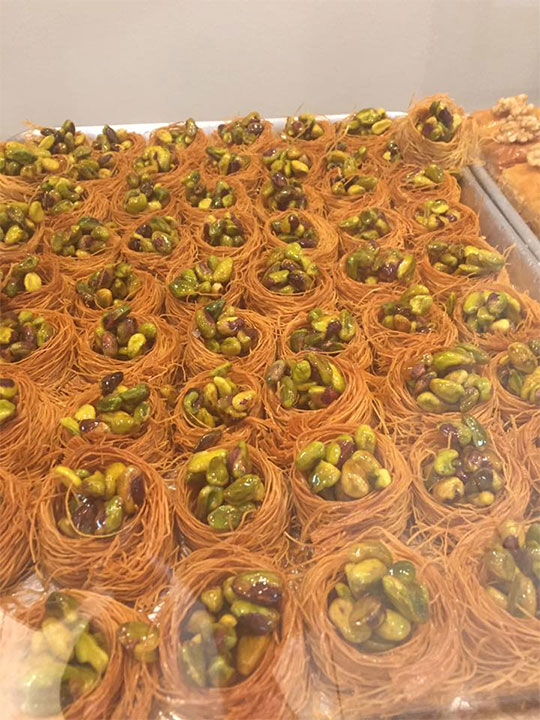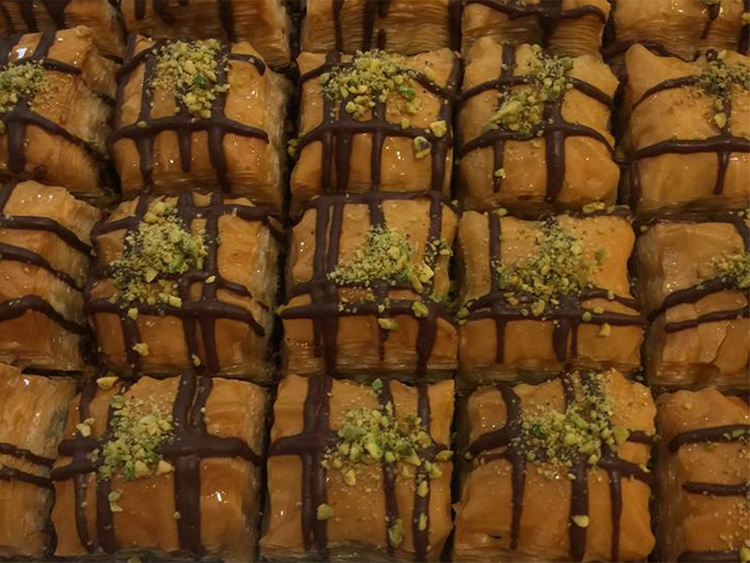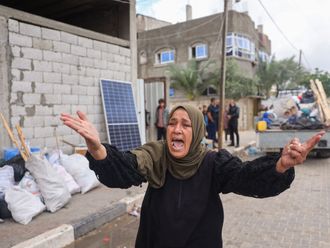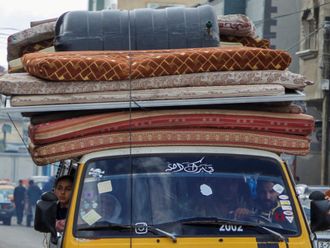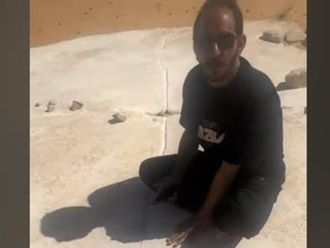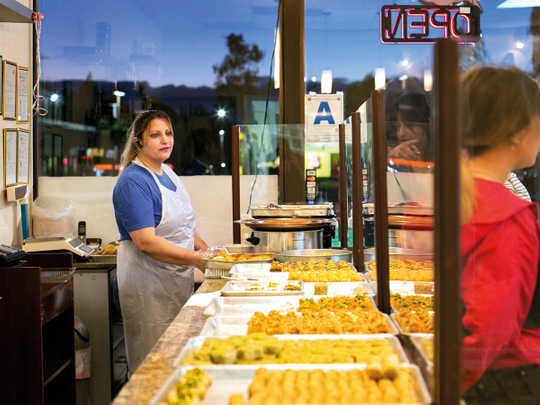
Spring Valley, California: The marriage of Nael and Manar Al Najjar was forged in sugar. Mr Najjar grew up working in his family’s Baghdad sweet shop. When he proposed, three months after meeting his future wife at a family wedding, he travelled six hours to her hometown, carrying 15 boxes of confections: baklava, kunafa and Turkish delights.
The couple settled in Baghdad, opened a bakery and started a family.
As Catholics, though, they faced discrimination and threats of violence following the US invasion of Iraq in 2002. When those threats turned deadly, they fled and sought asylum in America.
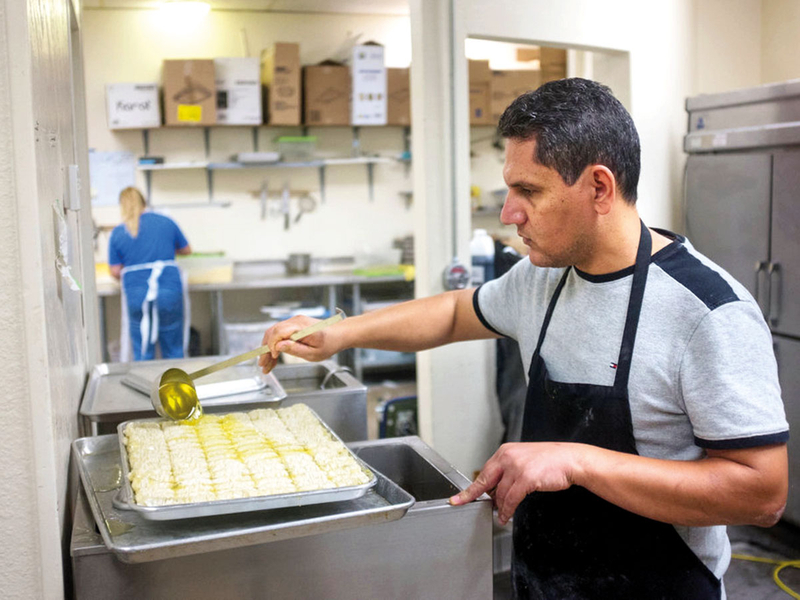
Since resettling, they have opened another bakery outside of San Diego. Running a sweet shop in Southern California requires a lot more than just baking skill, and the Najjars needed help. They got it from the International Rescue Committee.
“Now we have a big name,” Mrs Najjar beamed.
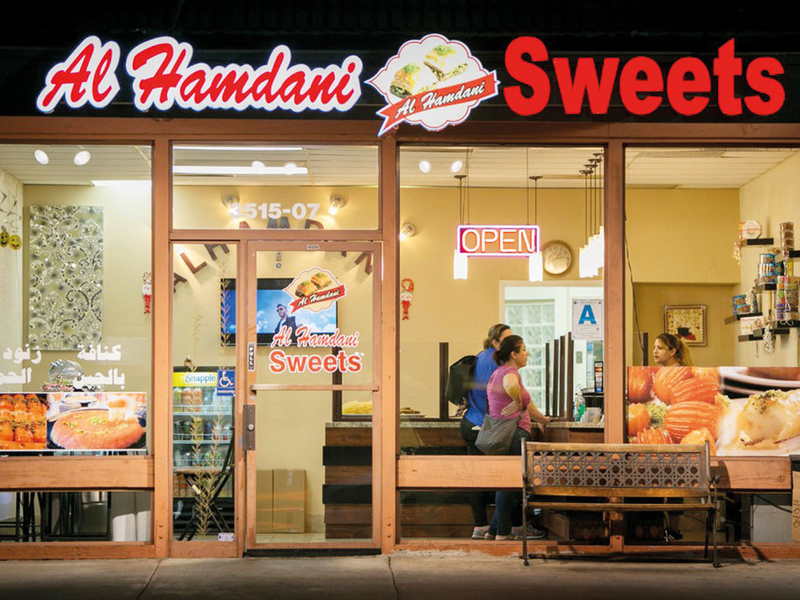
The Najjars met and married in 2002, a year before the United States and its allies invaded Baghdad.
In the following years, Iraq’s Christian minority faced increasing persecution. Numbering roughly a million in 2003, the population was cut in half by 2010, as many Christians emigrated to escape the violence against them.
Amid the turbulence of life in Iraq during this period, the family still found its routine, running the bakery, raising the children. “We lived, like, no problem,” Mrs Najjar said.
Sharing her husband’s skill in the kitchen, Mrs Najjar often cooked at our Lady of Salvation Church, Baghdad’s main Catholic cathedral.
On October 31, 2010, six militants from Daesh stormed the church during evening mass. They fired assault rifles, lobbed grenades and — when Iraqi commandos stormed the church — detonated explosives strapped to their chests. Fifty-eight people died in the attack. Among the victims were two of Mr Najjar’s relatives, one of them an infant.
Two weeks later, Mrs Najjar, who had not been at the church during the attack, found a note slipped under the front door of the family’s home. It said, “We’re going to kill you,” she recalled recently. Their children were 4 and 2 years old at the time, and the Najjars decided they needed to pack up the family in a few suitcases and join the exodus of Iraqi Christians fleeing to northern Iraq, then to Turkey.
Al Hamdani Sweets
Once there, the Najjars initially settled in Usak, a provincial capital in eastern Turkey, where Mr Najjar quickly found a job at a bakery. Soon after, they applied for asylum in America. It was granted in 2014, and the family moved to the San Diego area, where the parents worked in bakeries for three years and dreamed of again opening their own.
“We wanted to make something together, something strong,” said Mrs. Najjar, 38. “It is my dream and my husband’s dream.”
Their new bakery, Al Hamdani Sweets, opened in a popular shopping centre near an interstate in August 2017. Mr Najjar bakes, while Mrs Najjar handles management, marketing and deliveries.
Their experience running a bakery in Baghdad, though, went only so far in Spring Valley. Taxes, permits, health codes and other regulations proved challenging. “In Baghdad, you don’t have taxes,” Mr Najjar, 43, said in the back room of the shop, with Turkish delights on the counter and stacks of trays and pastry boxes piled up around him.
As the Najjars tried to keep their business, named after the town where the couple married, going after a slow start, the International Rescue Committee helped the Najjars navigate the unfamiliar rules and manage their finances.
“IRC helped so much,” said Mrs Najjar, who kept her Bluetooth device in her ear throughout an interview last month. “They make everything easy.”
More than a year in, business at the Najjars’ shop is good, with a steady stream of customers, many from a nearby hookah lounge. They have hired two employees. A wide variety of sweets, which Mr Najjar bakes daily, are sold at local grocery stores and a university, and wholesalers in Sacramento and Seattle buy them, too.
Early next year, the family will be eligible for citizenship, and they plan to apply. The couple’s two children, now 13 and 10, enjoy school and sometimes help at the bakery.
In the back room, Mrs Najjar scrolled on her smartphone through photos of the children, laughing and covered in flour. “Here, my children have a good future,” she said.


